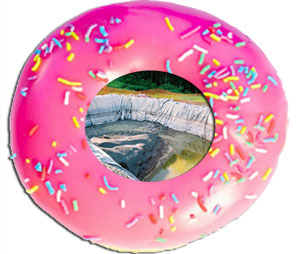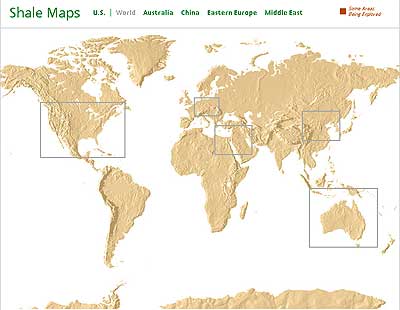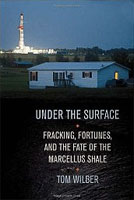Contains the keyword background
Foreign Policy in Focus (FPIF) publishes commentaries, briefs, and reports on its website and organizes briefings for the public, media, lawmakers, and legislative staff.
As world leaders discuss the threat to the planet in various venues around the world, it’s the poor who face the dire consequences. Marginalized and vulnerable populations--from small farmers in Africa to fisher folk on the banks of island nations--suffer most from the refusal of developed nations and corporations to cut back on emissions that are heating up the planet. But these same populations offer important and sustainable solutions to global warming.
The problem is that the world’s leaders are not listening. And that is not likely to change at the meeting on climate change in Cancun, Mexico that will start at the end of November and run through December 10...
...All signs point to an intensification of market-based proposals for bringing the planet away from the brink of environmental disaster. Rather than addressing the current model of production, trade, and consumption that has caused the crisis, these false solutions aim to deepen it. A closer look at the so-called “Clean Development Mechanisms” (CDM) shows how.
The CDMs defined in Article 12 of the Kyoto Protocol are essentially a dodge that allows developed polluting countries to avoid immediate and significant cutbacks in emissions by “offsetting” them with projects in developing countries to conserve carbon sinks (areas that store carbon, such as forests and jungles) and other schemes. The $127 billion global carbon trading market has become a lucrative marketplace for turning planetary salvation into business deals. The upshot is that the polluter is allowed to keep on polluting. Meanwhile, areas previously cared for by local communities are pulled into management systems overseen by the polluters and international organizations that have purchased their “environmental services.”
Foreign Policy in Focus (FPIF) is a “Think Tank Without Walls” connecting the research and action of more than 600 scholars, advocates, and activists seeking to make the United States a more responsible global partner. It is a project of the Institute for Policy Studies.
Read the report, Protecting New York’s Air, Land, Water and People: What’s the Hydro-Fracking Rush? (PDF 3.1 MB)
Read Deep Pockets, Deep Drilling, published by Common Cause, July 2010 (PDF)
Read "Affirming Gasland" (PDF) from Damascus Citizens
Supporting materials and other information
County and Town Hydro-Fracking Resolutions
NYS Bills on Environmental Effects of Fracking
Comments submitted by governments, agencies, and organizations on New York’s proposal to permit Hydro-fracking for natural gas extraction in the Marcellus and Utica shale formations.
Photos and related videos of our Hydro-Fracking Day of Action
See this 92 page report criticizing the 2009 New York State DSGEIS:
Myers, Tom. Review and Analysis of DRAFT Supplemental Generic Environmental Impact Statement On The Oil, Gas and Solution Mining Regulatory Program Well Permit Issuance for Horizontal Drilling and High-Volume Hydraulic Fracturing to Develop the Marcellus Shale and Other Low-Permeability Gas Reservoirs. Technical Memorandum. Citizens Campaign for the Environment. New York NY: Natural Resources Defense Council, December 28, 2009. (92 pages).
Mira's Movement is a pediatric cancer support and advocacy organization, dedicated to supporting families facing a childhood cancer diagnosis, as well as increasing funding of research into better treatments and the causes of childhood cancer.
Do you know that pediatric cancer is the leading disease killer of children in the United States? That 35 children are diagnosed with cancer in the US every day? Do you know that, according to the National Cancer Institute, pediatric cancer as a whole received only $200 million for research in 2009?
Not enough is being done to better understand childhood cancer—what causes it and how to better treat it. It's not because there aren't enough researchers ready to do this work. It's because there isn't enough public and private funding to move it ahead. If parents of children with cancer weren't busy taking care of them, hoping to save their lives, or grieving, they'd be able to be more vocal advocates. For these reasons, many voices are not being heard, and we're working to change that. Please join us in supporting and speaking up for kids with cancer!
Source: US Mortality Files, National Center for Health Statistics, Centers for Disease Control and Prevention and 2004 Life Tables.
See: Sandra Steingraber. Raising Elijah.
See: Poisoned profits : the toxic assault on our children
See: The Case for a Truth and Reconciliation Commission on Toxic Hazards
See: Fracking: Implications for Human and Environmental Health
See: Food and Water Watch
Government officials from around the world have recently declared that the risks of natural gas drilling are too great to allow it to proceed without additional analysis:
- The Town Council of Bartonville, Texas, in the Barnett Shale, voted to impose a 90-day moratorium on new permits for natural gas drilling and hydraulic fracturing in order to give the Council time to review the Town's regulations. They are particularly concerned about chemicals used in hydraulic fracturing.
- The Prime Minister of France ordered a national ban on shale oil and gas drilling until two separate government reports are published in June and there is more information available on the risks.
- The government of Quebec halted all shale gas drilling after an expert committee found that scientific data regarding the impacts of shale gas development are partial or non-existent. Quebec will be conducting its own in-depth analysis.
- The Maryland House of Delegates passed legislation that essentially halts any natiural gas drilling in the state until a two-year study on the risks is completed.
- Regarding the risks, In the second draft of a Health Impact Assessment of natural gas operations in western Colorado, public health experts concluded that: "Battlement Mesa residents will most likely be affected by chemical exposures, accidents/emergencies resulting from industry operations, and stress-related community changes." The experts provide more than 70 specific recommendations to address the potential impacts.
- And just yesterday, the City Council of Morgantown, West Virginia, passed a resolution demanding that acting Governor Tomblin convene a special legislative session to toughen regulations on natural gas drilling in the Marcellus shale field.
Fast Food Energy: Mom and Dad’s Great American Gas Rush.
Neil Zusman
Wilber, Tom. Under the Surface: Fracking, Fortunes and the Fate of the Marcellus Shale. Ithaca: Cornell University Press, 2012. Print.
Hydrofracking’s proposed a massive industrial transformation on a huge swath of the rural Northeastern U.S. and has divided communities and sparked an intense public debate touching on our method of economics, law making and enforcement. The book under review, Under the Surface, is one of less than 100 books published on the subject of hydraulic fracturing or fracking. Author Tom Wilber covered the environmental beat for Binghamton, N.Y.’s Press & Sun Bulletin.
Even George W. Bush said in a Presidential speech, that "Americans are addicted to oil". In my opinion, we are also addicted to natural gas and it is being pushed by the industry and abetted by govenments. A Theory of Rational Addiction (1988) by economists Gary Becker and Kevin Murphy, argued that shooting heroin is a logical choice when all you're giving up is a crappy existence. 1
Time’s humorist, Joel Stein, wrote about “Instant Gratification”. 2 Has everything in our culture become humorous? The controversy over how fast to develop the natural gas that lies beneath the Northeastern U.S. has not had the privilege of humor that Stein brings to his observations on self-gratification, or his penchant to deliver it in his own narcissistic, Seinfeld-esque 'cult of personality' idiom. Nevertheless, the fatter we all get craving our Big Macs, carbonated corn syrup, and drugs; the richer a few of us will become. The longer we are told to believe that hydrofracking is, in Terry Engeldr's words, 'a Christmas present for America', the more we will accept it as inevitable.
 3
3
It took an insider at the cigarette industry to finally confirm what the Surgeon General was trying to tell us 30 years earlier. And yet, the labels and warnings and widespread anti-smoking campaigns will not keep me from my craving. I may need a cigarette today and I am sure that I can get it. I don’t have that app that shows me what I will look like when I’m 80. Stein’s app would change my picture of the 80 year old me posted electronically on my fridge each time I eat a jelly glazed doughnut. The app for the cigarette smoker – would likewise factor the algorithms of that gratification. And our energy craving…trouble is, the math guys don’t have the data for that one.
In fact, so much of this stuff has been covered up and fabricated, that it’s hard to get any real data at all. The University of Pennsylvania had to eat crow over “The Penn State Report”. 4
“Graham Spanier, president of the university received a letter from an advocacy group complaining that the so-called Penn State report confused academic research with propaganda by its industry sponsors.”
…Spanier ordered William Easterling, dean of the college that published the report, to address the complaint. A few weeks later, Saxton (president of the Board of Responsible Drilling Alliance) received a reply from Easterling conceding that an internal review “found flaws in the way the report was written and presented to the public.” The fact that the report failed to identify its sponsor was a “clear error”. 5(p98)
 6
6
None of this stuff is illegal though. It’s a free market. As if that were everything.
Investors are satisfied with the way a cigarette or sugar doughnut or Big Mac works on our brain. Is that funny? Tom Wilber asks if will it be boom or bust and cites the work of Janette Barth.5(p101) Susan Christopherson and Ned Rightor, in "How Should We Think About the Economic Consequences of Shale Gas Drilling?" 7 have also wondered about that in a Park Foundation funded study. Who to believe?
Will our children grow up to be gas engineers or scholars, musicians or maids in the halls of the energy elite? We want them to be prepared. Will they be able to compete in the free market? And what about nature? What is a life worth? The EPA has put a valuation on it. 8 It’s worth about 7.9 million dollars. Is that chump change?
Humor is a challenge that may not be begged of Mr. Wilber’s reporting. He never intended his book to be funny. He gets both ends of the story on flowback, which are recovered fracturing fluids. According to the EPA’s web page, “Hydraulic Fracturing Background Information”, 9 disposal options for flowback include discharge into surface water or underground injection. Treatment is typically performed by wastewater treatment facilities. How companies deal with the disposal of the millions of gallons per well of waste-water produced in the gas extraction process is apparently well-known and regulated, but Wilber reveals that
“…There was something else that bothers Ken [Ely]. He hadn’t anticipated the wells on his land would produce so much waste. This included not only the spent chemical solution used to stimulate each well, but tens of millions of gallons of brine and whatever else came up from the holes. The flowback was supposed to be treated and disposed of at plants equipped to handle it, yet nobody could tell Ken exactly where those plants were.
…When I [Wilber] asked regulators where the flowback was being treated, they told me it was a question for the companies. When I asked company representatives, they told me, “It’s all regulated.” 5(p86)
Now that’s funny.
He interviewed Terry Engelder, who released the potential of the Marcellus Shale in the “Penn State Report”. He estimated there are 500 trillion cubic feet of natural gas waiting to be discovered. By Tony Ingraffea’s calculations, the Cornell engineering professor who has criticized the rush to develop the gas resource so quickly, it will take 400,000 wells to get to it, with each well requiring 5 million gallons of fresh water. That’s 2 trillion gallons of water going in, and somewhat less coming out that would need to be trucked, disposed of, or treated, or injected into the ground. Cayuga Lake, which is 40 miles long, 2 miles wide, and has a maximum depth of 435 feet, contains a total of 2.5 trillion gallons of water. 10
Wilber’s book reminds us how the facts of the water draw are not just about measuring the water usage and arguing those numbers, the huge impact that hundreds of thousands of truck trips on county roads will have on rural communities will be catastrophic, notwithstanding the composition of the wastewater itself.
The Marcellus Rush is all humorless self-indulgence, fancy landmen with Texan drawls and cowboy hats who look like your grandfather; engineers and scholars who think they’ve discovered the next big thing; and then the one after the big thing that will save us from the next big thing. Wilber gives us the Terry Engelder character, larger than life:
“He thought of the Marcellus discovery as a Christmas present for America; and on his drive home, after days of thinking about the possibilities, he was given to playing the Radetzky March by Johann Strauss…” 5(p96)
Somewhere in Washington, EPA Director Lisa Jackson’s speechwriter, tunes her Cello, and begins to play Bach’s Solos for Cello. Have you listened to those speeches? 11
If my life is so crappy that I don’t care if I smoke a pack a day or shoot heroin, whose job is it to stop me? I can buy any brand I want. Some brands even offer healthy alternatives. If I live in a poor neighborhood and can’t get a supermarket nearby, the government might have a program to encourage a market to open so I won’t have to live on Wendy’s or Big Macs. We like this stuff, we eat it to obesity and vote for it with our dollars; but the U.S. government tells me that I need a better diet, more choices. When it comes to energy, I can use natural gas, or… natural gas. I can put gasoline in my tank, or gasoline… People are buying electric cars. Maybe the trend is shifting.
“I asked Hanger where natural gas fit into his vision of green energy. It was better than coal, he said, the mining of which destroys mountaintops and the burning of which produces CO2 gases and mercury that accumulate in the food chain. In his view, a surge in the development and demand for alternatives, including solar panels, is imminent, due mostly to China’s burgeoning interest in the industry. “The baby has been born,” he said. "China is intent on building solar panels for the world. Those changes will come and those changes will be rapid – less than five years." 5(p204)
The cult of personality, as portrayed so eloquently in this important book, may be in need of a sense of humor and the self-deprecating sarcastic one-liner to make them marketable, but they have brought out our need to think about energy, the best thing our planet of humankind needs.
At one end of the spectrum were characters who
“…embraced the industry as an expression of old-fashioned free enterprise…At the other end of the spectrum were those who saw the industry as a relic of grandfather clauses and cronyism that dated to a period of predatory exploitation, when fantastical deals were pitched by door-to-door peddlers, manufacturing waste was buried in lagoons on private property, and unions were nonexistent. The middle ground was occupied by an untold number of consumers used to cheap plentiful energy, and property owners, who had their worries but also were able to calculate how much a mineral rights lease might be worth.” 5(p104)
Wilber draws the sides in as divisive and rude a public debate as one might expect to see on Fox TV. I don’t know why it hasn’t been picked up as a reality show yet, but it may be soon. Stu Gruskin, former asst. head of the NYS DEC admires civil discourse on his blog.12 He sounds like a sweet anachronism. I bet each side of this debate would like to call each other “big fat idiots” the way Al Franken tells it in his book on Rush Limbaugh13 or in Lies – and the Lying Liars who Tell Them, investigating the fabrications published by Bill O’Reilly, Ann Coulter, and Sean Hannity. One of Franken’s big ideas in Lies is that even good journalists contribute to the lie, taking at face value the reporting of their colleagues and re-iterating the report without investigation. 14 Wilber investigates.
References
1. Murphy KM, Becker GS. A Theory of Rational Addiction. Journal of Political Economy. 1988;96(4):675-700.
2. Stein J. "Instant Gratification." Time. 2012. Available at: http://www.time.com/time/magazine/article/0,9171,2113162,00.html [Accessed May 2, 2012].
3. Zusman N. Mashup of Hubbard 1, 6-H, 5-H, Springville, PA by Helen Slottje and Homer Simpson Doughnut. 2012. Available at: /frack_files/frac-pond-Helen-Slottie.jpg [Accessed April 28, 2012].
4. Glass I. This American Life Search Archive 440: Game Changer Transcript. Available at: http://www.thisamericanlife.org/radio-archives/episode/440/transcript [Accessed May 2, 2012].
5. Wilber T. Under the surface : fracking, fortunes and the fate of the Marcellus Shale. Ithaca: Cornell University Press; 2012.
6. Guariglia J. Cancer - Rogue Cells | Photo by Justin Guariglia. Available at: http://science.nationalgeographic.com/science/health-and-human-body/huma... [Accessed May 2, 2012].
7. Christopherson S, Rightor N. Working Paper Series: A Comprehensive Economic Impact Analysis of Natural Gas Extraction in the Marcellus Shale | How Should We Think About the Economic Consequences of Shale Gas Drilling? 2011. Available at: http://www.greenchoices.cornell.edu/downloads/development/marcellus/Marc....
8. Appelbaum B. "A Life’s Value May Depend on the Agency, but It’s Rising." The New York Times. 2011. Available at: http://www.nytimes.com/2011/02/17/business/economy/17regulation.html?_r=... [Accessed February 17, 2011].
9. U.S. Environmental Protection Agency (EPA): Office of Ground Water and Drinking Water OW. U.S. Environmental Protection Agency (EPA): Hydraulic Fracturing Study (2010-2012). Available at: http://water.epa.gov/type/groundwater/uic/class2/hydraulicfracturing/ind... [Accessed April 13, 2010].
10. Cayuga Lake Watershed Network. 2005. Available at: http://www.cayugalake.org/network/faq.php [Accessed May 2, 2012].
11. Jackson L. Lisa P. Jackson, EPA (lisapjackson) on Twitter. 2010. Available at: http://twitter.com/lisapjackson [Accessed January 11, 2011].
12. Gruskin S. Stuart Gruskin - Google+ - It's refreshing to read about public officials that are... Stuart Gruskin - Google+. 2011. Available at: https://plus.google.com/115541440669480452148/posts#11554144066948045214... [Accessed May 2, 2012].
13. Franken A. Rush Limbaugh is a big fat idiot and other observations. New York: Delacorte Press; 1996.
14. Franken A. Lies : and the lying liars who tell them : a fair and balanced look at the Right. New York: Dutton; 2003.
See also: Wilber, Tom. “Shale Gas Review.” Shale Gas Review, 2011. http://tomwilber.blogspot.com/.













